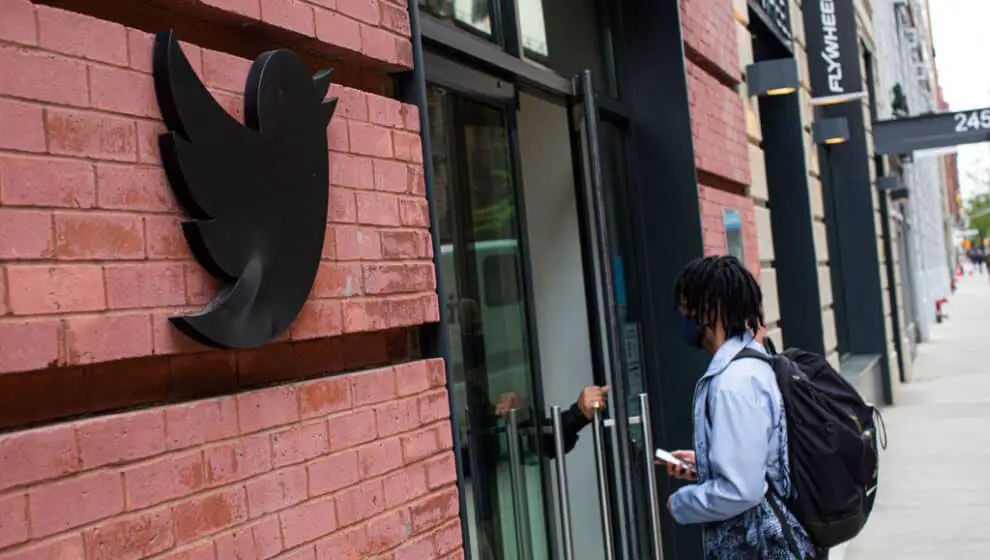If Elon Musk’s Twitter deal goes through it looks like the banks financing it are getting a worse investment then they originally agreed to.
Key Details
- Elon Musk has officially agreed to return to his original offer to buy Twitter for $54.20 a share—for a total of $44 billion.
- Many of the big banks that previously agreed to finance the deal could lose up to $500 million if the deal were to finalize right now.
- The banks that agreed to help include Bank of America Corp., Barclays Plc and Mitsubishi UFJ Financial Group Inc., but now these banks could be facing big losses as they committed the money in better times.
Why it’s important
Elon Musk first offered to buy Twitter in April for $54.20 a share or $44 billion. There have been many twists since the initial offer and now it’s back to the beginning as Musk has reverted back to the original deal.
The thing is when Musk originally made the deal the economy was looking good so banks offered a big amount of money to help finance, but now the economy has dramatically changed and banks will have to fight for the funds.
While Musk will provide much of $44 billion by selling down his stake in electric vehicle maker Tesla and by leaning on equity financing from large investors, major banks have committed to provide $12.5 billion.
The banks are now facing losses of around $500 million or more if the deal goes through.
Junk-bond and leveraged loan yields have surged since April, meaning that banks will lose money from having agreed to provide financing at lower yields than the market will accept now, according to Bloomberg.
The banks committed debt financing for the deal back in April, with the intention to sell most of that to institutional investors. As the economy continues to soften, investors are being very cautious about where they put their money—making buyers harder to find.
This Deal is Different
This deal is different from most leveraged buyouts (LBOs).
A leveraged buyout is basically when one company buys another, but it does so by using a large amount of borrowed money to meet the cost of acquisition.
Typically in LBOs, the ratio of equity is usually around 45% to 50% of the deal, but this case is different, according to Bloomberg writer Paula Seligson.
Musk is providing about $33.5 billion in equity or about 72% of the total transaction for Twitter—leaving banks with the remaining $13 billion to provide.
Since the banks offered the money in easier times, it will not be harder to get the money for the deal.
Backing up a Bit
The timeline between Elon Musk and Twitter is a lengthy one.
In April, Elon Musk announced that he held a 9.2% stake in Twitter, which made him the social-media company’s largest shareholder. Twitter’s stock price soared 25% after the announcement.
Later that month, the billionaire entrepreneur offered to buy all of Twitter at $54.20 per share—equaling about $44 billion. He said he originally invested in the platform because he believes it is failing in its potential to be the leading platform for free speech around the globe. In fact, he asked his 2 million followers if Twitter adhered to principles of free speech, and 70% said “no.”
In July, Musk decided to back out of the deal, claiming there were too many fake accounts on the platform. Twitter has since sued Musk in Delaware Court of Chancery to complete the deal and requested the trial to take place in September. Musk, on the other hand, wanted to delay the trial until February 2023, stating that a case of this size takes time to prepare. Twitter was granted its wish of an expedited trial, with Chancellor Kathaleen McCormick, the presiding judge, setting a five-day trial for October. Musk then countersued Twitter, stating his reason for the termination was due to Twitter not being upfront about the number of fake accounts on the platform.Then, Elon Musk and his legal team subpoenaed Twitter’s founder and former CEO Jack Dorsey, to get him to release documents that provide accurate information on bots and spam accounts on the social-media platform and now these documents have come out from Zatko and Musk and his lawyers have subpoenaed him as well.
Then, Musk’s text messages were revealed in court filings and it showed that Twitter co-founder Jack Dorsey tried to facilitate Musk’s Twitter takeover, which led to Musk officially reverting back to his original deal to buy the social media company.
